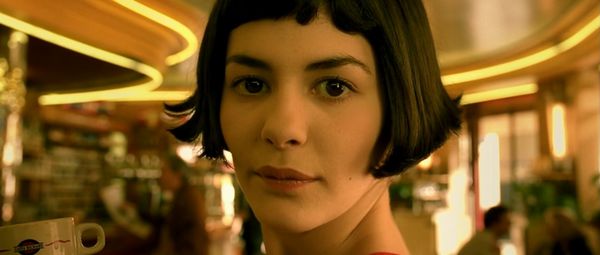
Tuileries: The Coen Brothers’ Short Film About Steve Buscemi’s Very Bad Day in the Paris MetroĪ Cinematic Journey Through Paris, As Seen Through the Lens of Legendary Filmmaker Éric Rohmer: Watch Rohmer in Paris Paris Through Pentax: Short Film Lets You See a Great City Through a Different Lens The Shining and Other Complex Stanley Kubrick Films Recut as Simple Hollywood Movies And so, with characteristic cleverness, Jeunet has reinvented Amélie as a Soviet agent by employing the principles of Soviet montage. (Indeed, that spirit is on display in the original movie’s exaggeration of whimsical-French-film tropes.) Much like the Hollywoodified Kubrick trailers we previously featured here on Open Culture, this new short also constitutes a demonstration of how the meaning and impact of cinema are created not by the images themselves, but rather by their context and juxtaposition. On one level, La véritable histoire d’Amélie Poulain testifies to the enduring playfulness that keeps Jeunet from taking his own work - even the work that became a global phenomenon - too seriously. That may sound far-fetched, but Jeunet supports every detail of Amélie’s double life, and of the story of her re-entry into espionage after the fall of the Berlin Wall, using the very same scenes and involving the very same characters we remember from Amélie. But with the talented Audrey Tautou in the leading role, Amelie is sheer delight, and will entrance everyone who sees it.In fact she works as a spy for the KGB, having first been recruited in childhood with the promise of candy bars. Amelie was rejected by the Cannes film festival this year, but it was a mega-success in France, though some writers have attacked it for its Mary Poppins-ish depiction of a Paris where no people of colour are to be seen and old-fashioned attitudes reign. He also creates a wonderful array of characters who need Amelie's encouragement, played by a gallery of fine actors, including Jeunet regular Dominique Pinon, as a lovesick patron of the cafe, Rufus, as Amelie's father and Matthieu Kassovitz, as a young man obsessed with collecting photos left behind at automatic booths.

With a little help from digital enhancing, Jeunet recreates a Paris as it might once have been, without really going back into the past. It's the most benign film to date from Jean-Pierre Jeunet, the gifted visual stylist who created some very dark films like Delicatessen, City Of Lost Children and his Hollywood thriller, Alien Resurrection.

Amelie or, to translate the original French title, The Fabulous Destiny Of Amelie Poulain, is both very original and rather old-fashioned. In her sweetly optimistic way she determines to help the people around her, to change their lives, while she herself maintains a solitary life.

Amelie decides to try to track down the boy, now a man, and return his childhood toys. Now she works as a waitress in an old-style cafe and her life is changed forever on the day Princess Di is killed – when she discovers, hidden behind her bathroom wall, a box left there by a boy who once lived in the house. She's an only child whose mother died young and whose father was convinced she was suffering from a heart ailment so she never went to school and as a result lived a lonely life filled with fantasies.


 0 kommentar(er)
0 kommentar(er)
